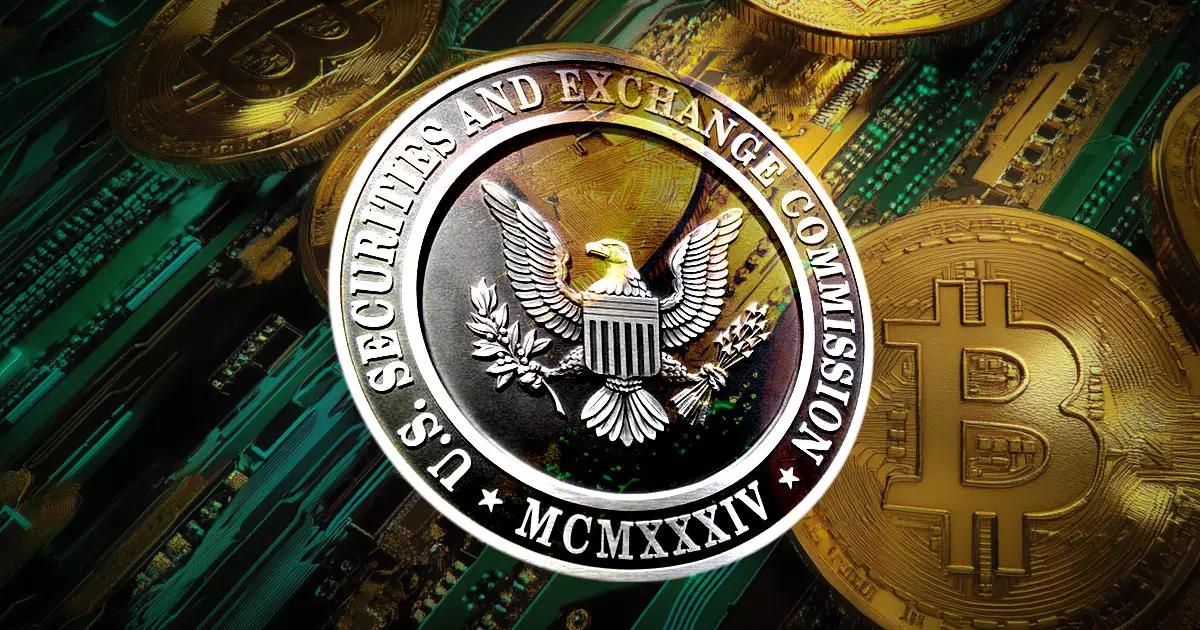In a notable development, the U.S. Securities and Exchange Commission (SEC) recently engaged with heavyweights from the cryptocurrency and financial sectors, including representatives from BlackRock and the Crypto Council for Innovation’s Proof of Stake Alliance. These discussions signal a growing recognition of the urgency for regulatory clarity surrounding cryptocurrency exchange-traded products (ETPs). Given the volatile nature of the crypto market, regulatory oversight is not just an option; it is a necessity.
Those who dismiss the importance of robust regulatory frameworks in the cryptocurrency space do so at their peril. The discussions held on April 1 were not merely ceremonial; they reflect a profound need to address the multifaceted risks associated with investing in ETPs that leverage cryptocurrencies. BlackRock, one of the largest asset managers globally, brought its comprehensive expertise to the table, emphasizing the in-kind redemption processes vital for the smooth operation of crypto ETPs. This necessity is not only a technical requirement but also a matter of safeguarding investor interests. In an environment rife with uncertainty, any loophole can be exploited, potentially leading to devastating financial ruin for investors who assume they are adequately protected.
Staking and Its Implications for Regulation
Staking has emerged as a hot topic in these discussions, particularly its implications for crypto ETPs. As we see increased participation of traditional financial institutions in crypto, the need to understand staking processes becomes paramount. Members of the Proof of Stake Alliance also voiced legitimate concerns around staking, an integral component of many proof-of-stake (PoS) blockchain networks like Ethereum and Solana. To sideline these discussions would be naively optimistic, glossing over significant risks that can drastically affect investor returns.
When industry representatives suggest the exclusion of staking from ETPs, they aren’t merely advocating for regulatory flexibility; they’re also sounding alarms about potential losses for investors. The SEC’s resistance to implement guidelines around staking won’t just frustrate innovative financial products but could also expose naive investors to excessive risks. Thus, a reevaluation of existing regulatory paradigms is not merely advisable—it’s essential for protecting the interests of everyday investors.
The Risks of Inaction
While the SEC’s overtures to both BlackRock and the Proof of Stake Alliance are commendable, they also illuminate the broader risk landscape for crypto investors. The recent meetings follow an earlier engagement with firms like Jito Labs and Multicoin Capital, highlighting ongoing concerns about including staking mechanisms in crypto ETPs. The potential consequences of inaction are staggering. Failing to reach a consensus could lead to a market characterized by uncertainty—where institutional players remain hesitant, and retail investors find themselves navigating a labyrinth of ill-defined rules and ethical dilemmas.
Investors, especially those new to cryptocurrency, are often unaware of the complexities that surround staking and ETP functionality. Without proper regulatory guidance, these individuals may inadvertently expose themselves to financial vulnerability. They deserve transparency when it comes to the risks involved, particularly as crypto assets transition from the periphery to the core of mainstream finance.
A Call for Robust Regulatory Frameworks
The dialogue around staking models—including the “Services Model” and the “Liquid Staking Token Model”—points toward a dynamic intersection between innovation and regulation. Yet these innovations must be housed within a regulatory structure that prioritizes the protection of consumer interests. As BlackRock and various crypto advocates propose frameworks to accommodate staking within ETPs, the SEC should not solely weigh these proposals through a regulatory lens but must also consider their long-term implications for investor confidence.
This moment calls not just for an open dialogue between regulators and industry leaders but for decisive action. The stakes could not be higher; the integrity of financial markets and the stability of investor confidence depend on how effectively these challenges are addressed. In a rapidly evolving landscape like cryptocurrency, where innovation often outpaces regulation, it’s paramount that governing bodies act decisively and transparently to create frameworks that actively protect investors from potential calamity. The time for half-measures and reactive governance has passed—this is an imperative for our financial future.

